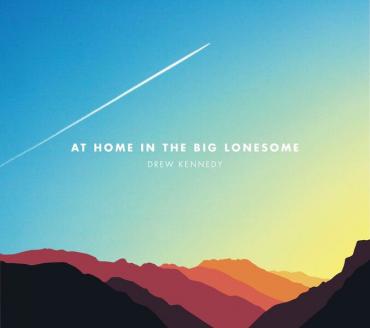Drew Kennedy Shares An Emotional Homecoming

It’s amazing how an artists as adept and accomplished as Drew Kennedy continues to put out such wonderful records and still remains overlooked by the public at large. And while his wonderful new album At Home in the Big Lonesome may not resolve that situation, it does offer proof that those unaware are indeed missing out. Beginning with the elegiac opening ballad, a quiet piano liturgy entitled “When I’ll Miss You the Most,” Kennedy pours his soul into these songs, trying to reconcile the divide between the restless lure of taking to the road and the emotional tug of leaving loved ones at home. It’s an age-old dilemma for most professional musicians — and with eight albums to his credit, Kennedy is clearly as accomplished as most — but rarely has that pull of circumstance been discerned with so much emotion and sincerity as Kennedy manages here.
Then again, this is not the first time that Kennedy’s visited this theme. It’s popped up repeatedly in his music. However here, in songs like “House,” “24 Hours in New York City,” “My Love Will Never Change,” “Open Road” and “Miles to Go,” he shares his perspective from the vantage point of a rearview mirror, site-checking his far flung destinations while pondering life’s sadder circumstance. He details his journey with intimacy and clarity, allowing the listener to share his disconnect while still celebrating the lure of destinations that lie far beyond the horizon. The otherwise economical arrangements (piano, banjo and occasional strings along with the standard accoutrements) bolster that hint of quiet contemplation, but when the emphatic energy of a song like “Jackson” kicks in, the music literally seems to soar.
It’s tempting to say that Drew Kennedy has made his masterpiece, but the fact remains that his body of work is worthy of an acclaim that’s eluded him so far. Suffice it to say that his music warrants discovery and one would be wise to delve in without hesitation. At Home in the Big Lonesome is an ideal starting point, but it’s also just the beginning.


